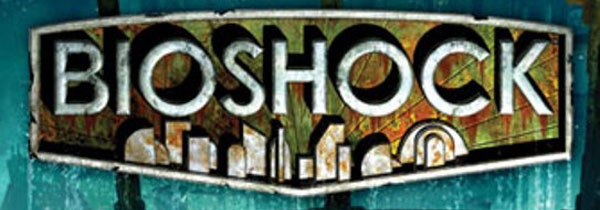
BioShock: Rapture is a prequel novel to the BioShock video game series. Author John Shirley takes us from the inception of Rapture: from an idea blossoming in the mind of Andrew Ryan, to its violent and inevitable descent into madness. Though Shirley has so much material to work from, he doesn’t quite bring it all together in a way that is satisfying; in fact, he does little to bring anything to life that wasn’t already in our imaginations from the games themselves.
Author: John Shirley
Publisher: Tor Books
Release Date: July 19, 2011
BioShock: Rapture begins at the moment Ryan decides to put his plan into play. Disgusted and terrified by what humankind has done in the wake of dropping the atom bombs on Japan, he brings Rapture to life, hoping that he and his chosen ones will be safe leagues under the sea. All of the key players from the game are introduced, including Bill McDonagh, Sander Cohen, Frank Fontaine, and Diane McClintock. Each one is given background and, in some cases, the author writes from their point of view. The story itself takes us through each of the major parts of the game.
While Shirley spends time fleshing out much of the story in his own way, much of it is already there through the game and what the game offers us through audio diaries and other clues about the rise and fall of Rapture. There’s not much here to offer fans of the series, unless what you want is to be spoonfed all the little parts in between that your imagination didn’t already piece together. There’s not much that’s new or unknown, and anything that is, isn’t really delivered in a way that is interesting or well-written.
As a novel, this is shoddy work. Sentence fragments and ellipses litter everything, and it’s written more like a screenplay than a novel. One section starts out, “A raw morning on the North Atlantic. Broken light slanted fitfully through silver-gray clouds.” Many chapters begin in this way, setting a scene with fragments that seem more at home in an amateur free novel on the web. The book doesn’t even feel like it’s divided into coherent chapters, more often abruptly shifting from one character and time to the next with no real consistency.
One of the main difficulties of the novel was that Shirley would try so hard to do things like describe the security bots. His paltry descriptions were not what brought the bots to mind, but rather my real experiences from when I played the games. He tried to depict the sounds, but I could hear them in my head nonetheless, getting the quick feeling of dread as I remembered the whistling noises, and recalling my satisfaction as I’d hack them myself. Nothing Shirley described brought those to mind as clearly as my own recollections did.
Having a BioShock novel to fill in some of the missing details would have been a nice addition to the franchise, but for the most part, Shirley’s level of writing is both inadequate and unnecessary. He’s brought nothing truly new to the table, and done it in a way that is utterly boring. While it was nice to have added backgrounds to the characters, he didn’t go into enough detail, and what could have been amazingly deep ended up being shallow and a waste of time. In fact, I would say that the book is nearly offensively mediocre in that it had such a rich pool of information to draw from and still managed to do nothing but bore and disappoint.
BioShock: Rapture is a novel that never should have been published. Weak writing and a half-hearted implementation of so much potential leaves so much to be desired here. While the most hardcore fans might want to have it in their library just to say they own everything from the franchise, even they will probably put it down after a chapter or two, preferring to spend their time replaying the first game and possibly even penning fan fiction that would surely be better than this.

Review Disclosure: A retail copy of BioShock: Rapture was purchased by Warp Zoned for the purposes of this review.







